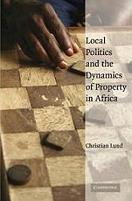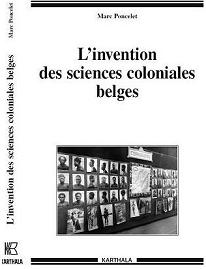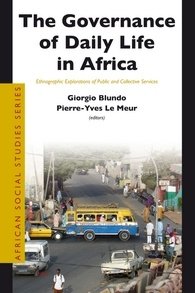
by Admin-Apad | 31 Mar 2015
Gudrun Lachenmann & Petra Dannecker -2008-
While much has been written about the hegemonic production and discursive struggle of development concepts globally, this book analyzes the negotiation of these development concepts locally and translocally. It focuses on three countries which are undergoing different Islamisation processes: Senegal, Sudan, and Malaysia.The authors present empirically grounded research to show that, although women are instrumentalized in different ways for the formation of an Islamic identity of a nation or group, they are at the same time important actors and agents in the processes of negotiating the meaning of development, restructuring of the public sphere, and transforming the societal gender order.

by Admin-Apad | 31 Mar 2015
Christian Lund -2008-
Access to land and property is vital to people’s livelihoods in rural, peri-urban and urban areas in Africa. Through recourse to a variety of political, administrative, and legal institutions, people exert tremendous energy and imagination to have land claims recognized as rights. The book provides a detailed analysis of how public authority and the state are formed through debates and struggles over property in the Upper East Region of Ghana. It explores particularly how state divestiture of land in 1979 encouraged competition between customary authorities and how, as a result, the earthpriest was revived.

by Admin-Apad | 31 Mar 2015
Olivier de Sardan, J.P., 2008, La rigueur du qualitatif, Bruxelles, Academica, 365 p.
Cet ouvrage tente de défricher un espace encore à peu près vierge : celui d’une réflexion systématique sur l’ancrage empirique des énoncés dans les sciences sociales qualitatives. Dans la mesure où toute enquête de terrain (sous forme d’insertion prolongée du chercheur) produit des données discursives et observationnelles, on doit s’interroger sur la nature du lien entre le ” réel de référence ” et ces données, comme sur le lien entre ces données et les énoncés interprétatifs et autres ” théories ” figurant dans le texte écrit final. Comment définir une ” politique du terrain “? Que signifie comprendre ou exprimer ” le point de vue des acteurs “? Sur quelles procédures repose l’observation? Quelles sont les conditions de la rigueur dans les approches qualitatives ? Quel est leur régime de véridicité ou de plausibilité ? Quelle place accorder à la subjectivité du chercheur ? Peut-on minimiser les pièges de la sur-interprétation ou les biais des idéologies scientifiques ? Ce livre s’adresse aux étudiants avancés, aux doctorants et aux chercheurs. Il propose, en termes accessibles et sans jargon, une réflexion de fond originale, solidement documentée et argumentée, appuyée sur quarante ans d’expérience de l’enquête de terrain.
http://www.editions-harmattan.fr/index.asp?navig=catalogue&obj=livre&no=38948

by Admin-Apad | 31 Mar 2015
Marc Poncelet – 2008 –
En Belgique, toutes les institutions contemporaines liées à la connaissance des mondes lointains trouvent leur origine dans l’expérience coloniale. La saisie savante et scientifique des mondes lointains et l’invention d’une vocation coloniale nationale, la construction d’une ambition impériale et finalement d’un pouvoir colonial doté d’une idéologie, bref de la « colonialité » belge, apparaissent donc inextricablement liées. Les sciences coloniales se sont d’emblée conçues à la fois comme connaissance de l’Afrique et comme analyse du processus colonial lui-même.

by Admin-Apad | 31 Mar 2015
Giorgio Blundo & Pierre-Yves Le Meur (eds.), 2009, The Governance of Daily Life in Africa: Ethnographic Explorations of Public and Collective Services, Brill Academic Pub.
Anchored in an empirically-grounded anthropology, this book explores the notion of governance in a non-normative way. It describes and analyses the institutional and political processes through which social actors and groups – be they state, private or « third-sector » – contribute to the provision of public and collective goods or services. The book draws on case studies from Anglophone and Francophone Africa, crossing anthropological traditions that have too often evolved in parallel directions and dealing with a range of topics such as health, water supply, sanitation and waste management, security, humanitarian aid, land issues and decentralisation. Beyond African boundaries, it contributes to current debates about governmentality, public policy, subject making, public/private boundaries, and the role of the state.







Recent Comments